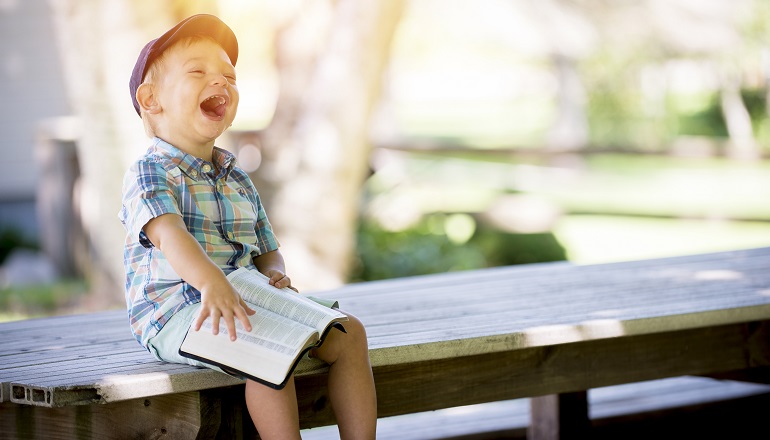It’s a sultry afternoon, and the traffic is heavy. My 3-year-old, strapped into a car seat behind me, begins to squirm and cry. I tense, fearing a meltdown before we reach home. So I begin reciting the words of a favorite book at the same pitch as my daughter’s wail:
Down by the river in the heat of the day,
A crocodile sleeps and awaits his prey,
ZZZZZZZZZZ, ZZZZZZZZZZ, ZZZZZZZZZZ!
Nicole is silent now, calm, listening with rapt attention.
Ducks are quacking and splashing around,
Quack Quack Quack Quackity Splash!
I pause as I turn the corner, and she shouts, “Read! Read!”
Elephants’ feet are thumping the ground,
Boom, Boom, BOOM-BOOM-BOOM!
[From Crocodile Beat, by Gail Jorgensen and Patricia Mullins.]
The idea came in a moment of desperation, but it showed me how rich her world of books and stories already was—long before she could read herself. At age 3, she was eager for all that storybooks, rhymes, and fairy tales held for her.
Jingles, jokes, and tales open up unknown worlds in a way that won’t overwhelm a child. It lets them see the flow of thinking move across a page in an enticing rhythm.
Books like Crocodile Beat are built on sequences of sounds, making words hard to resist. Kids savor the repetition and enjoy “reading” along and filling in missing words. If I stop at the end of a phrase, Nicole completes it: “Down by the river in the heat of the day, the crocodile sleeps and awaits his ____.”
This enthusiasm makes children ready to read when school rolls around. So have fun with books, poetry, and language gameseven in moments of stress!



